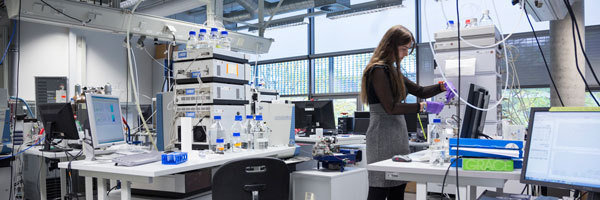
Focus on fat molecules
One of the greatest challenges in modern biology is to bring together the copious amount of knowledge about individual molecules in living organisms. These include the various fat molecules, known as lipids. They are a significant component of the cell’s sheath, called the cell membrane. Scientists assume today that lipidomics, i.e. the analysis of all the lipids in the body, will develop into one of the main tools of developmental and cell biology, molecular medicine, and nutritional science in the near future.
The Max Planck-NCBS Center on Lipid Research will be led by the Max Planck Institute of Molecular Cell Biology and Genetics in Dresden, as well as by the National Centre of Biological Sciences (NCBS) in Bangalore, India. In addition, the Max Planck Institute for Infection Biology in Berlin, the Max Planck Institute of Colloids and Interfaces in Potsdam, as well as the Institute of Life Sciences in Bhubenewar are also participating. The researchers, moreover, are counting on strong support from the field of synthetic chemistry. Besides the Max Planck institutes and the NCBS, which have been working successfully in the area of lipid chemistry, chemical companies located in Bangalore, for example, are included as well.
“We would like to analyse the complete inventory of lipids for various cells and organisms so we can develop instruments that make use of lipidomics for biological system analyses, as well as for investigating and treating diseases”, explains Marino Zerial, Director at the Max Planck Institute of Molecular Cell Biology and Genetics, and one of the two leaders of the new Center. To this effect, the German and Indian researchers have laid out several goals:
- the systematic analysis of all the fat molecules in different organisms;
- identification of biochemical pathways for production and degradation of lipids;
- determination of the roles of specific lipids in the organisation and functioning of membranes in cellular organelles, cells, tissue, and the entire organism.
The scientists expect that decoding the lipid inventory of an organism will offer many surprises, such as the discovery of new classes or types of lipids that differ only at the molecular level, for example.
During the founding phase of the Center, which will stretch over five years, a Research Group will be formed in Dresden and Berlin. This will dedicate itself to biochemical and biophysical analyses of biological membranes and the genetic analyses of lipid metabolism in various animal model systems.
Furthermore, a Research Group that has already been founded in Bangalore will be incorporated, as well as a new additional Group established that will dedicate itself to lipid research. The scientific coordination for this will be assumed by K. Vijay Raghavan, Director of the National Centre of Biological Sciences. Together with Professor Zerial, he will serve as the second Leader of the Center. Additional scientific coordinators will be Teymuras Kurzchalia for Max Planck and Satyajit Mayor on the Indian side.
The Max Planck Institute of Molecular Cell Biology and Genetics and the National Centre of Biological Sciences are global leaders in the field of bio-membrane research. The Center will generate further synergies. With use of the quantitative lipidomics technology developed by the Max Planck Institute in Dresden, the National Centre of Biological Sciences will have the means to expand its own research in the field of cell biology and the systematic analysis of lipids. The Max Planck institutes in turn will have the opportunity to establish a broader research presence and move lipidomics from its current early stage to a highly developed one in order that it can play an important role in basic biological and medical research.
Picture: Sven Döring